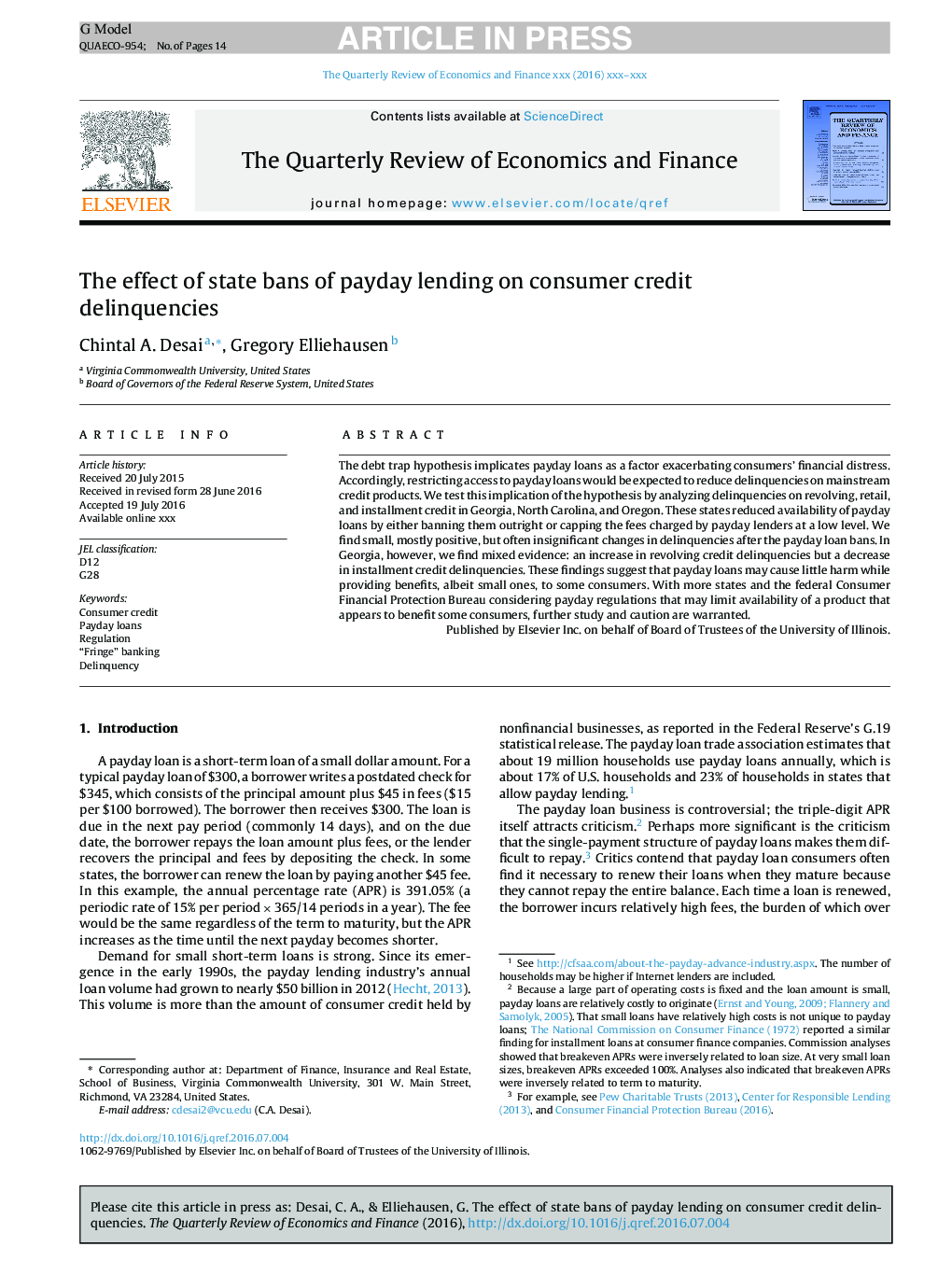| Article ID | Journal | Published Year | Pages | File Type |
|---|---|---|---|---|
| 5103632 | The Quarterly Review of Economics and Finance | 2017 | 14 Pages |
Abstract
The debt trap hypothesis implicates payday loans as a factor exacerbating consumers' financial distress. Accordingly, restricting access to payday loans would be expected to reduce delinquencies on mainstream credit products. We test this implication of the hypothesis by analyzing delinquencies on revolving, retail, and installment credit in Georgia, North Carolina, and Oregon. These states reduced availability of payday loans by either banning them outright or capping the fees charged by payday lenders at a low level. We find small, mostly positive, but often insignificant changes in delinquencies after the payday loan bans. In Georgia, however, we find mixed evidence: an increase in revolving credit delinquencies but a decrease in installment credit delinquencies. These findings suggest that payday loans may cause little harm while providing benefits, albeit small ones, to some consumers. With more states and the federal Consumer Financial Protection Bureau considering payday regulations that may limit availability of a product that appears to benefit some consumers, further study and caution are warranted.
Related Topics
Social Sciences and Humanities
Economics, Econometrics and Finance
Economics and Econometrics
Authors
Chintal A. Desai, Gregory Elliehausen,
